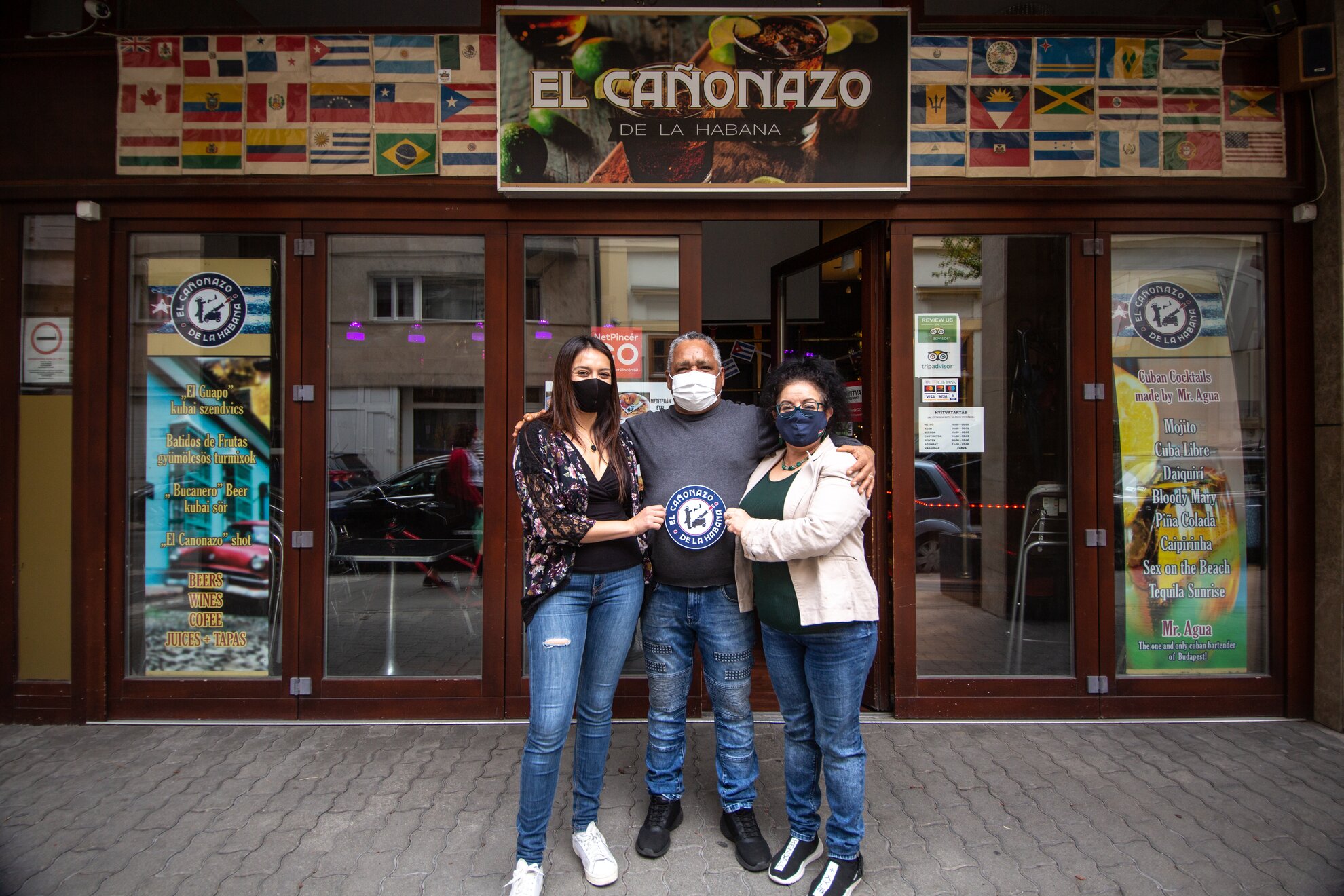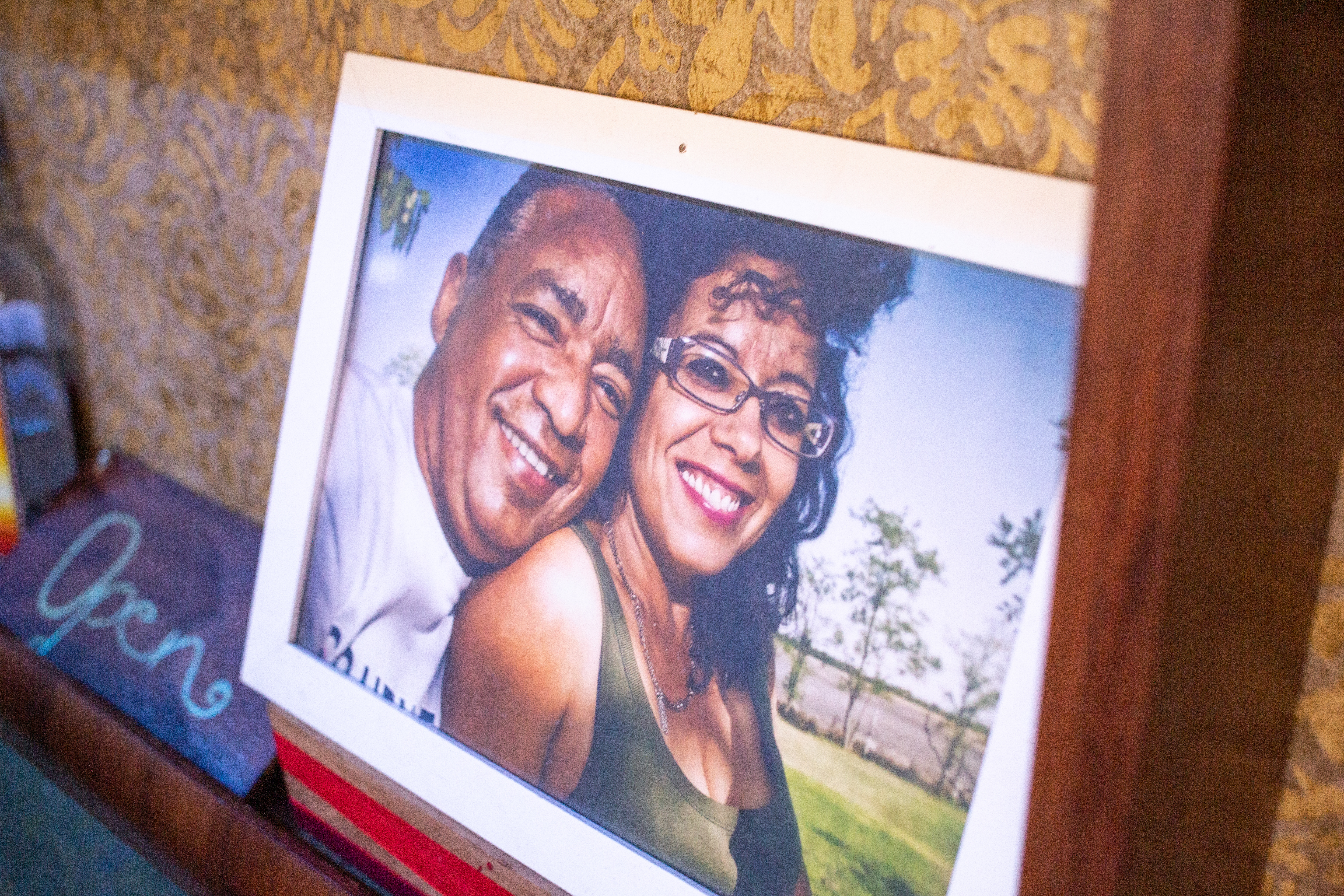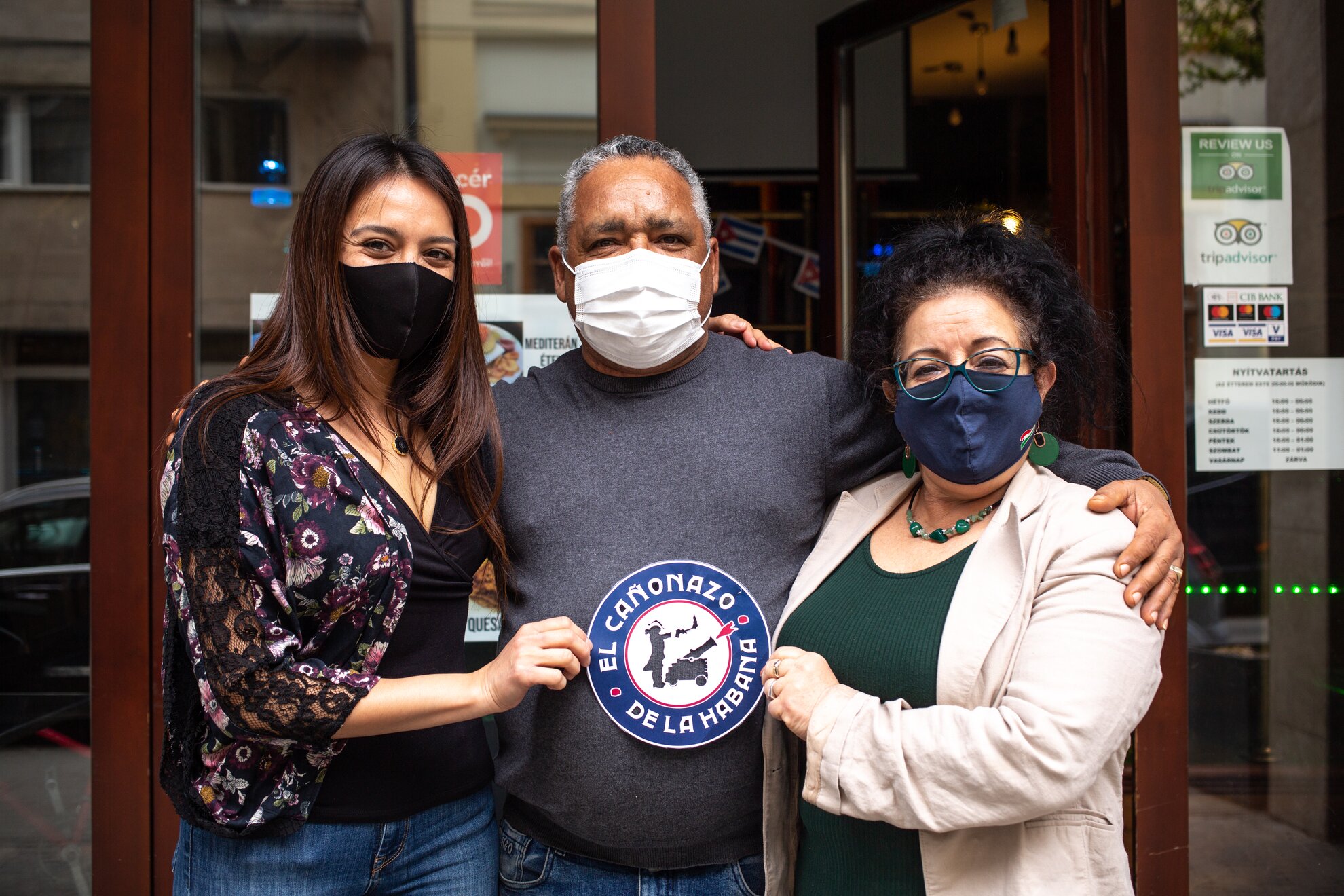
Lucy Ilia Álvarez and her family run a lively Latin bar in Budapest’s 6th district, known as El Cañonazo de la Habana. In non-coronavirus times, the bar is packed on a nightly basis, with with Latin dancing classes whirling away upstairs, and devoted regulars hanging out to chat with the charismatic bar staff. Now the doors are tightly shuttered, the music shut off, and Lucy sits down with us to talk about her story, and her vision going forward.
Originally from Cuba, Lucy came to Hungary in
1983 with the option to study or work here, and she never left. It was
difficult at first, she admits: “Everything is totally different. In Latin
America, everyone smiles, and if you have a problem, there is always a hand to
give you help. Europe is a little colder”.
“It's probably the effect of
surviving two world wars. But I feel that the general conscience is changing
these days,” she adds. Feeling like an outsider didn’t stop Lucy from jumping
right into Hungarian culture, though, and she's fluent by now. The
success of her bar, which she runs with her partner Eliezer Lara, is a testament to
her perseverance and work ethic.
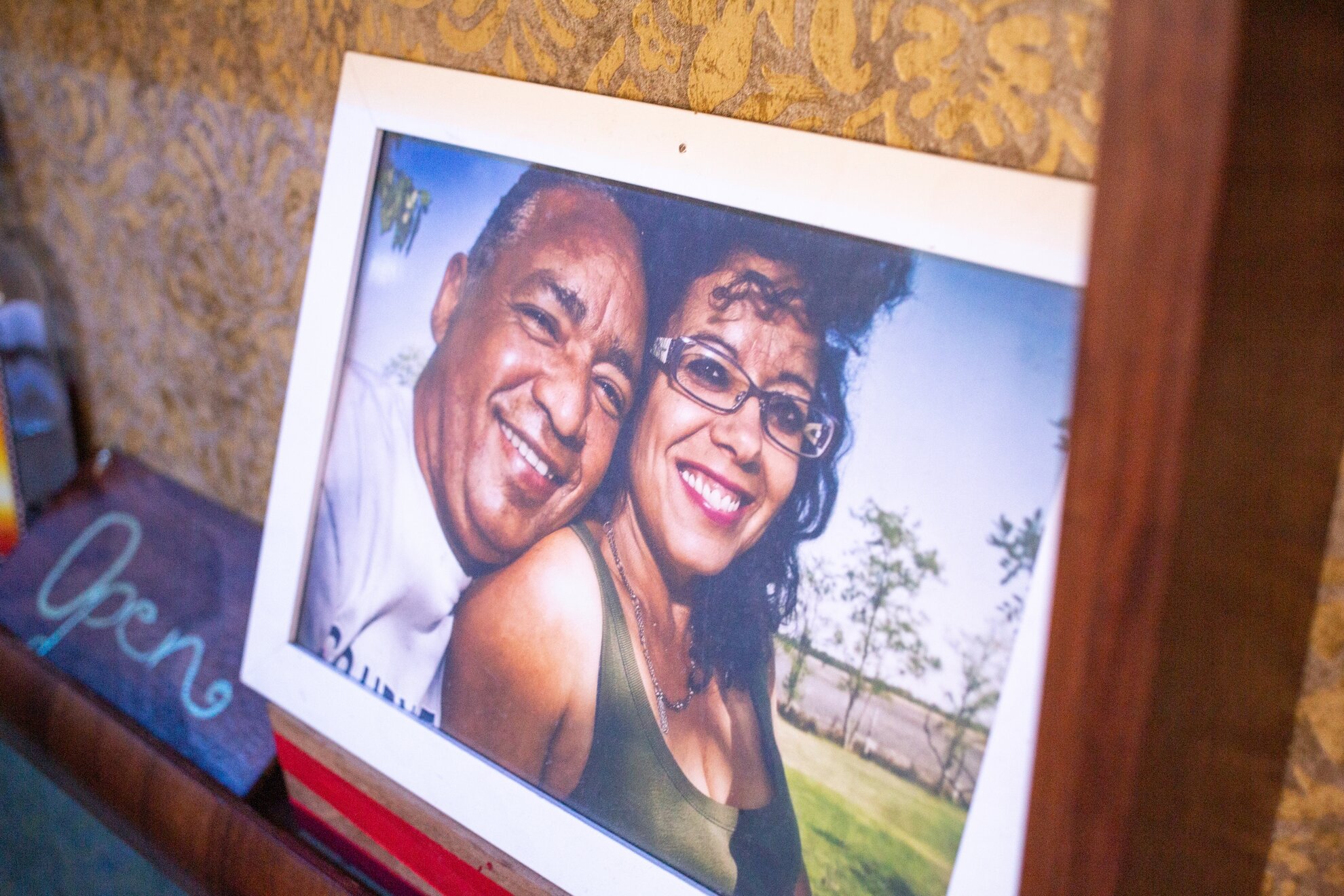
This spirited Cuban lady always has a big smile on her face, and sitting next to her is Germania Madrid, herself a recent transplant from Cuba who arrived in Budapest in 2019. “I came here on a visa programme, with the chance initially to stay one year,” says Germania. She met Lucy and Eliezer, and the three fused an immediate connection. “We can’t live without Germania!” Lucy exclaims, and Germania adds: “I’m like their daughter now.” The trio run El Cañonazo de la Habana together, with big plans for the future.
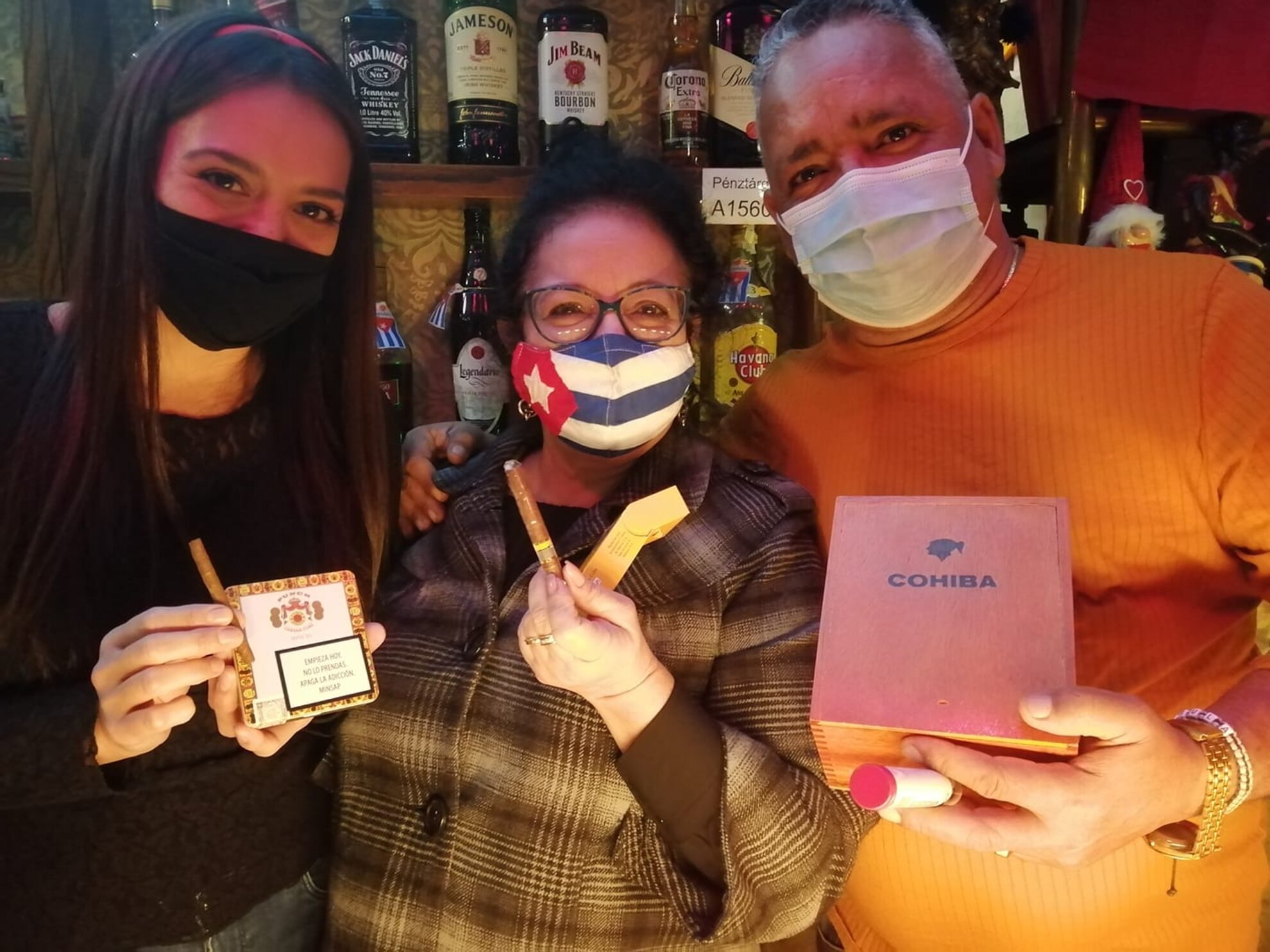
“We see this place as being a cultural experience,” says Lucy. “Foreigners come here because they went on holiday to Latin America once and now they want to experience it again, and Latin nationals come here to have a taste of home. We would love to turn this place into a huge cultural house for Latin people in Europe, with art, paintings, dancing and even language study.” She explains that many foreigners come to the bar with the wish to practise their Spanish with staff.
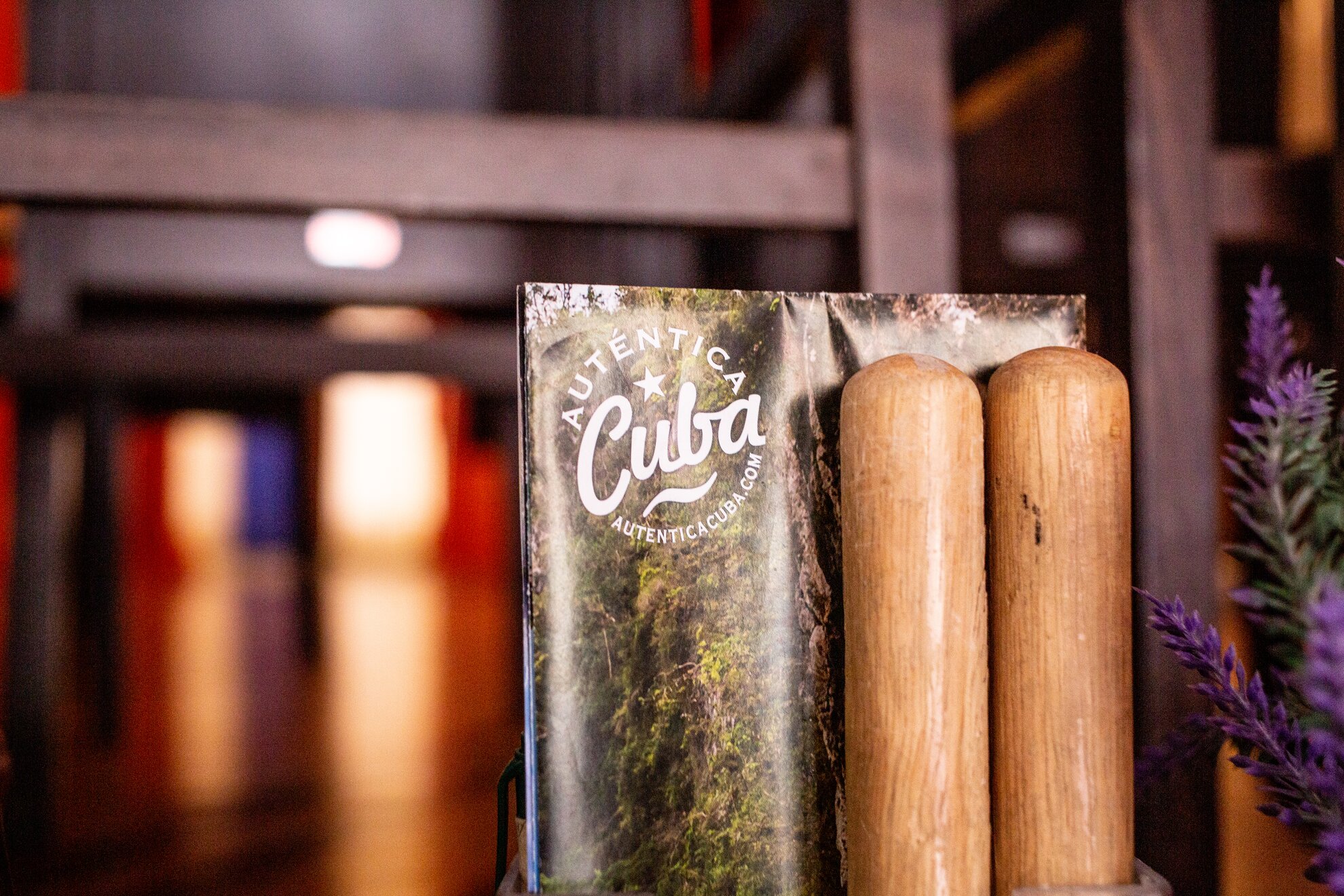
Of course, we broach the topic of coronavirus and the bright-eyed optimism is replaced with a more serious, furrowed brow. “We adapt,” says Lucy, “We have to focus more on food now, with special promotions on Facebook, but we also deliver cocktails through NetPincer. Yet we have a lot of hope, because we are still in business, and we look forward to when we can open our doors again. We have a great business with a lot of heart – we feel like a family, and we want people to come here for relief from corona.”
In fact, the bar is full of decorations which speak to the community who make this place, as everything is a donation from patrons. “People go to Cuba on holiday and bring us back paintings, dolls, inscribed cups – all sorts of gifts!” says Germania. She pulls down a figurine from behind the bar, another present. Upstairs is a special cloth wall-hanging where guests are invited to scribble their thoughts. It is full of words of appreciation in all languages, surrounded by big drawings of hearts.
It is not for nothing that locals and foreigners alike feel such an affinity to El Cañonazo de la Habana – Lucy has a special message for visitors: “We know that people are struggling,” says Lucy, “and we want to give back. So, when we are finally reopened, anyone who mentions this article will get 20% off!” she finishes, with a huge smile.
When the reopening does happen, you can bet that
we’ll be there for the party!
El Cañonazo de la Habana
District VI. Ó utca 24-26
